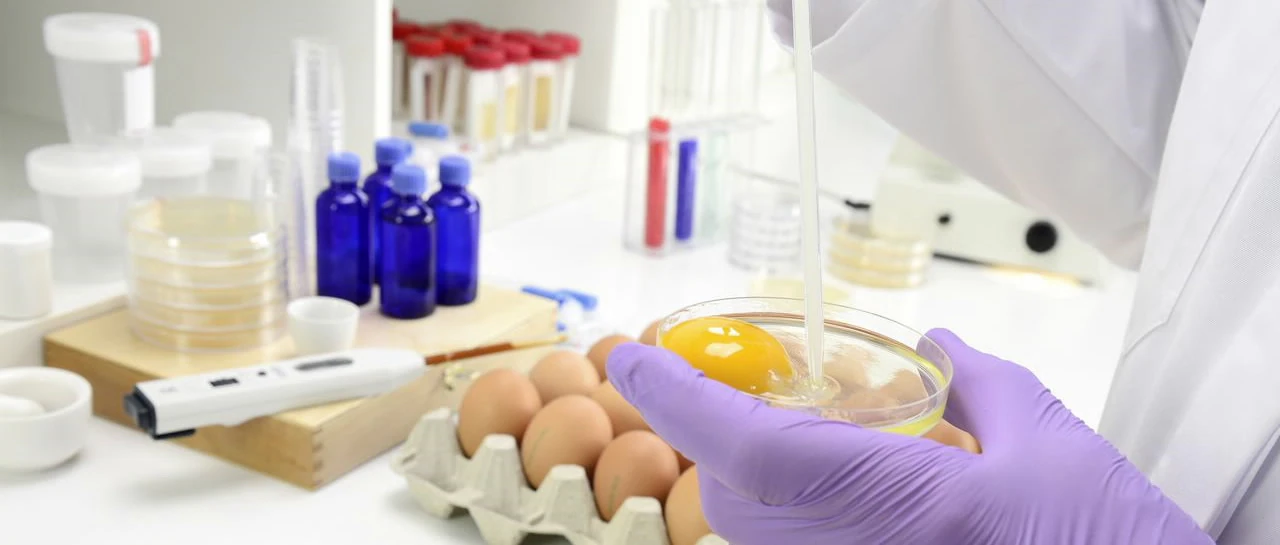EN 19188 Aspartame Detection in Infant Foods
The European Standard EN 19188 outlines a comprehensive method for detecting aspartame in infant foods. This standard is crucial for ensuring the safety and compliance of products intended for infants, who are more susceptible to the effects of artificial sweeteners. Compliance with this regulation demonstrates a company's commitment to safeguarding young consumers from potential health risks associated with mislabeled or improperly tested food products.
Infant foods represent one of the most critical sectors within the food industry due to the specific nutritional needs and vulnerabilities of infants. The use of aspartame in these products requires meticulous scrutiny, especially given its sweetener properties that can mask unpleasant flavors while being calorie-free. This process ensures that parents trust brands with accurate labeling, thereby maintaining consumer confidence.
Aspartame is a widely used artificial sweetener known for its high potency and stability at room temperature. However, it decomposes under heat and acidic conditions, which makes testing particularly challenging in infant foods that often undergo various processing steps before consumption. The standard provides detailed protocols to account for these variables, ensuring reliable detection even when the substance breaks down.
The procedure involves several stages including sample preparation, extraction methods, chromatographic analysis, and quantification. Each step is critical to obtaining accurate results, which are then compared against established thresholds set by regulatory bodies. By adhering strictly to EN 19188 guidelines, laboratories can ensure consistent and precise measurements across different batches of infant foods.
Accurate detection isn't just about meeting legal requirements; it also plays a vital role in protecting public health. Mislabeling or the presence of unintended aspartame could have serious consequences for infants with specific dietary restrictions or those sensitive to certain ingredients. Thus, rigorous testing practices not only uphold industry standards but also foster trust among consumers.
The methodology described in EN 19188 has been validated through extensive research and practical application across multiple laboratories worldwide. Its robustness lies in its ability to deliver consistent results regardless of minor variations in laboratory conditions or sample characteristics. This reliability makes it an ideal choice for ensuring compliance with international regulations while simultaneously enhancing product quality assurance.
By leveraging EN 19188, manufacturers can gain a competitive edge by demonstrating their dedication to producing safe and compliant infant foods. Consumers are increasingly seeking out products that align with high standards of safety and transparency. Therefore, incorporating this standard into your quality control processes positions you as a leader in the industry.
Why It Matters
Ensuring compliance with EN 19188 is essential for several reasons:
It enhances consumer trust by guaranteeing accurate labeling and safe products.
Avoids legal complications arising from non-compliance or product recalls due to mislabeling.
Promotes brand reputation through consistent adherence to international standards.
Facilitates smoother regulatory approvals by meeting strict requirements upfront.
In today's market, where misinformation and safety concerns can rapidly spread via social media platforms, maintaining stringent testing protocols is not just a legal obligation but also a strategic business decision. Companies that prioritize these aspects are better positioned to navigate the complexities of modern consumer expectations effectively.
Industry Applications
| Application | Description |
|---|---|
| Infant Formula Testing | Ensuring that infant formulas do not contain unacceptable levels of aspartame. |
| Baby Food Quality Assurance | Verifying the absence or presence of aspartame in baby foods according to regulatory limits. |
| Dairy Product Compliance | Checking for compliance with regulations regarding the use of aspartame in dairy products intended for infants. |
| Cereal and Grains Testing | Monitoring the content of aspartame in cereals and grains specifically formulated for infants. |
The ability to accurately detect aspartame in these applications is crucial not only from a regulatory standpoint but also from an ethical one. It helps protect vulnerable populations, ensuring that they receive nutritionally balanced meals free from harmful additives.
Competitive Advantage and Market Impact
Earns credibility with consumers who value transparency and safety in their purchases.
Achieves first-mover advantage by establishing a benchmark for excellence among competitors.
Attracts investment from stakeholders prioritizing sustainable practices and ethical business conduct.
Fosters long-term relationships with regulatory bodies, enhancing trust in your products.
In an increasingly competitive market, standing out through adherence to stringent testing protocols like EN 19188 can significantly differentiate a brand. It signals commitment to quality and integrity, which are paramount factors influencing purchasing decisions.





